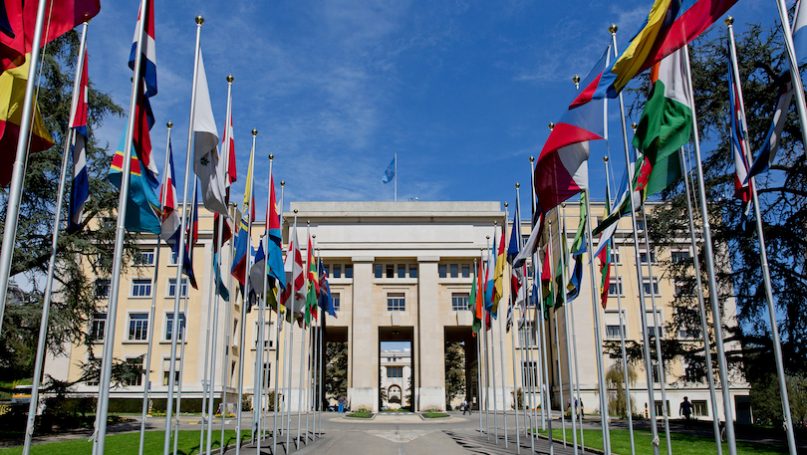
The League of Nations was the first worldwide intergovernmental organisation whose principal mission was to maintain world peace. Founded on 10 January 1920 following the Paris Peace Conference that ended the First World War, it ceased operations on 20 April 1946. At its greatest extent from 28 September 1934 to 23 February 1935, it had 58 members. After some notable successes and some early failures in the 1920s, the League ultimately proved incapable of preventing aggression by the Axis powers in the 1930s. The credibility of the organization was weakened by the fact that the United States never joined the League and the Soviet Union joined late and was soon expelled after invading Finland. Germany withdrew from the League, as did Japan, Italy, Spain and others. The onset of the Second World War showed that the League had failed its primary purpose, which was to prevent any future world war. The League lasted for 26 years; the United Nations (UN) replaced it after the end of the Second World War and inherited several agencies and organisations founded by the League. Text adapted from Wikipedia.
The resources below have been collated by the E-International Relations team to aid in the understanding of the League.
The League: Decline and Fall – UN Audiovisual Library.
This film is the history of the League of Nations from 1930 to the onset of the Second world War: that 10-year span ending when Geneva, surrounded by Axis Powers, almost faded into memory.
League of Nations (UN Geneva). An educational resource that provides historical information about the League of Nations. This online resource, provided by UN Geneva, describes the league’s political and technical activities during the interwar period.
Further Reading on E-International Relations
- The Importance of World Wars to the Discipline of International Relations
- Online Resources – Organization of the Petroleum Exporting Countries
- Introducing Bipolarity, Tripolarity, Unipolarity, Multipolarity and Multiplexity
- Towards Global International Relations
- Global Health
- Introducing Human Rights in International Relations